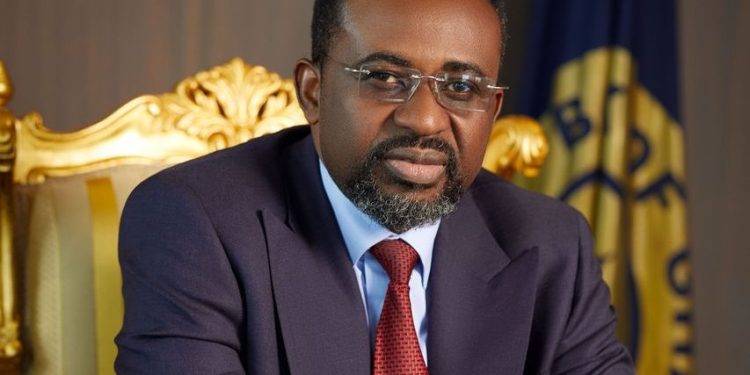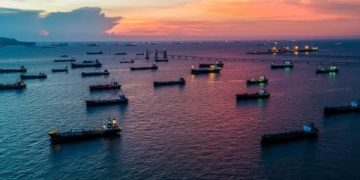Ghana’s Central Bank Governor Urges IMF to Reform Debt Sustainability Framework as African Economies Face SDG Setback
Governor of the Bank of Ghana, Dr Johnson Pandit Asiama, has called on the International Monetary Fund (IMF) to urgently strengthen its debt sustainability tools and scale up concessional support, warning that debt vulnerabilities across Africa are derailing progress toward the Sustainable Development Goals (SDGs).
Speaking on behalf of African central bank governors at the African Consultative Group Meeting at the 2025 IMF-World Bank Spring Meetings, Governor Dr Asiama painted a plain picture of the continent’s fiscal health. “Half of Sub-Saharan Africa is either in or at high risk of debt distress,” he stated. “This is crowding out development spending; per capita interest payments now exceed investment in both health and education.”
The address, which comes amid heightened concern over the continent’s rising debt levels, urged the Fund to update its framework for assessing low-income countries’ debt risks, integrate climate vulnerabilities, and promote early intervention strategies.
“The IMF must ensure the debt sustainability framework remains fit-for-purpose,” Governor Dr. Asiama stressed, adding that a refined framework should reflect the differentiated risk profiles and fiscal pressures faced by African nations.
The Governor cited a succession of external shocks, including the COVID-19 pandemic, tighter global financial conditions, geopolitical tensions, and escalating climate events, as core triggers for Africa’s deteriorating debt position. These, he noted, have contributed to rising rollover risks and a costly creditor shift toward non-concessional debt instruments.
“Fiscal space is vanishing,” BoG Governor warned, “and overseas development assistance continues to decline, compounding the burden on public finance managers.”
In his remarks, Dr. Asiama reiterated African Governors’ commitment to enhancing domestic resource mobilization and expenditure efficiency. However, he noted that these national efforts are insufficient without robust international support.
He specifically urged the IMF to:
- Replenish the Catastrophe Containment and Relief Trust (CCRT) and maintain concessionality in the Poverty Reduction and Growth Trust (PRGT);
- Accelerate debt transparency and restructuring under the G20 Common Framework;
- Encourage private creditor participation in sovereign debt relief initiatives;
- Promote innovative financing, including blended finance and debt-for-climate swaps.
The Governor also called for the timely distribution of IMF General Resources Account (GRA) income under the ongoing multi-year framework, a contentious topic as advanced economies debate revenue-sharing formulas.
In a thinly veiled account of the fragmented debt restructuring ecosystem, Dr. Asiama stressed the need for multilateral development banks (MDBs) to engage in “fairer debt treatment” and not remain insulated from the burden-sharing required in sovereign relief.
“The current architecture must be rebalanced to reflect the increasing exposure of MDBs to debt-distressed countries,” he said, pointing to the underwhelming traction of the Global Sovereign Debt Roundtable as evidence of credibility challenges.
To bridge the chasm between debt management and development financing, He proposed a stronger policy coordination mandate for international financial institutions. He urged the IMF and World Bank to align technical assistance, concessional lending, and reform incentives within a common results framework tailored to African contexts.
As climate shocks threaten to widen fiscal deficits further, he said Africa needs “ambitious yet achievable” financing models, ones that do not trap nations in a permanent cycle of restructuring and arrears clearance.
BoG Governor’s remarks come as Ghana itself emerges from a difficult domestic debt restructuring and awaits the IMF Executive Board’s approval of the fourth review under its Extended Credit Facility programme. The country remains a test case for how multilateral institutions respond to Africa’s evolving debt landscape and whether the global financial system can adapt in time to preserve the continent’s development trajectory.
Follow @NorvanReports for live coverage from the IMF-World Bank Spring Meetings 2025








